The IMAB project aims to involve the over-65s in learning about, understanding and expressing their opinions on the latest research in bioengineering for active ageing. The initiative has been carried out in collaboration with adult education centres, community centres, associations and university extension classes. The results will now be made available to the scientific community so that they can hear the public’s opinions and perspectives on these advances.
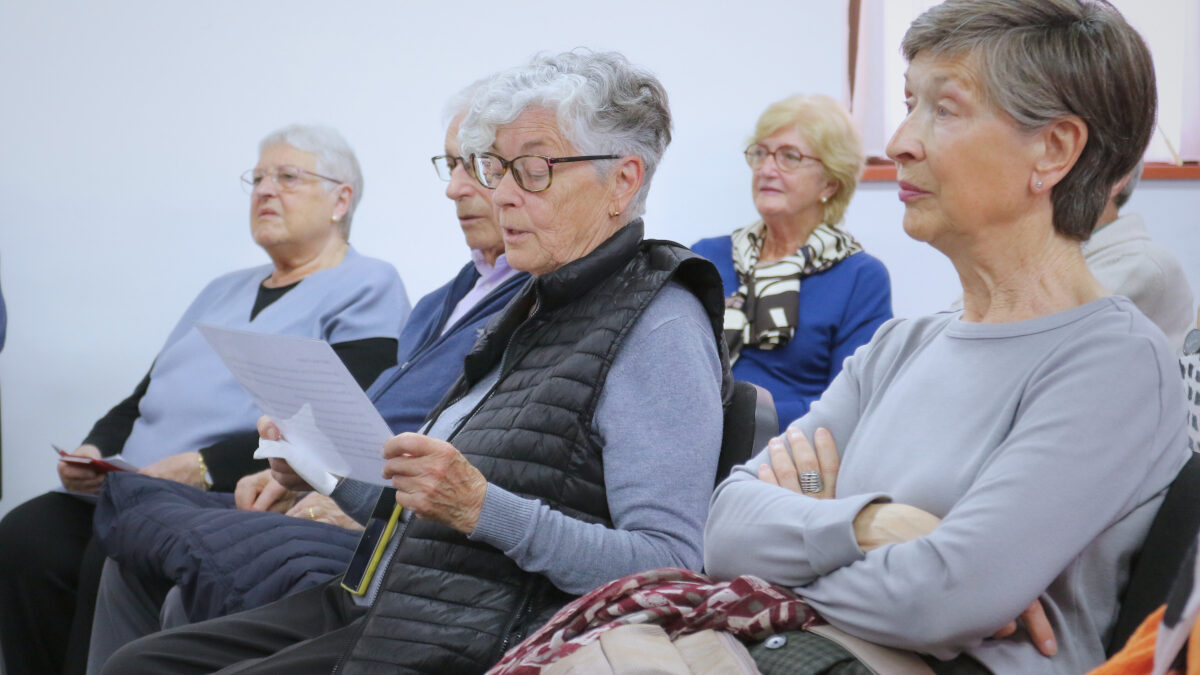
In general, most science popularisation projects are aimed at children, families or adults in general. However, there are few initiatives specifically aimed at the over-65s. Moreover, according to data from the FECYT 2022 survey on the social perception of science, interest in science decreases with age, and only 7.4% of people over 65 are interested in science and technology.
These data led to the proposal of the IMAB project: Involving the Senior Community in Advances in Bioengineering for Health and Healthy Ageing (for its Spanish acronym). With this initiative, IBEC aims to bring scientific advances and gather public opinion, as well as respond to the need to disseminate scientific knowledge in this age group.
The project was developed last year thanks to funding from the Spanish Foundation for Science and Technology (FECYT). IBEC aims to facilitate access to the latest advances in health-related bioengineering being developed at the Institute, such as organ and tissue bioprinting. By creating educational and reflective spaces and adapting resources to individual needs, the aim is not only to share knowledge but also to generate meaningful dialogue.
A project adapted to the public
The design of the activity took into account the different educational levels of the public, from those with no formal education to those with higher education. The outreach included explanations from IBEC’s own researchers, ranging from basic biological concepts to organ bioprinting. In addition, the materials were adapted to facilitate visual and auditory comprehension. Finally, to encourage discussion, fictitious patient cases were used to allow participants to openly discuss different situations. To overcome travel constraints, activities were taken to community centres to ensure inclusive participation.
Through projects such as these, IBEC aims to promote science education by engaging in a close dialogue with society, learning about their concerns and enhancing their knowledge of current science. In its outreach and science education programme, IBEC designs inclusive activities that cater for functional diversity and encourage the participation of different sectors of society, thus contributing to a more informed and involved community in scientific issues.
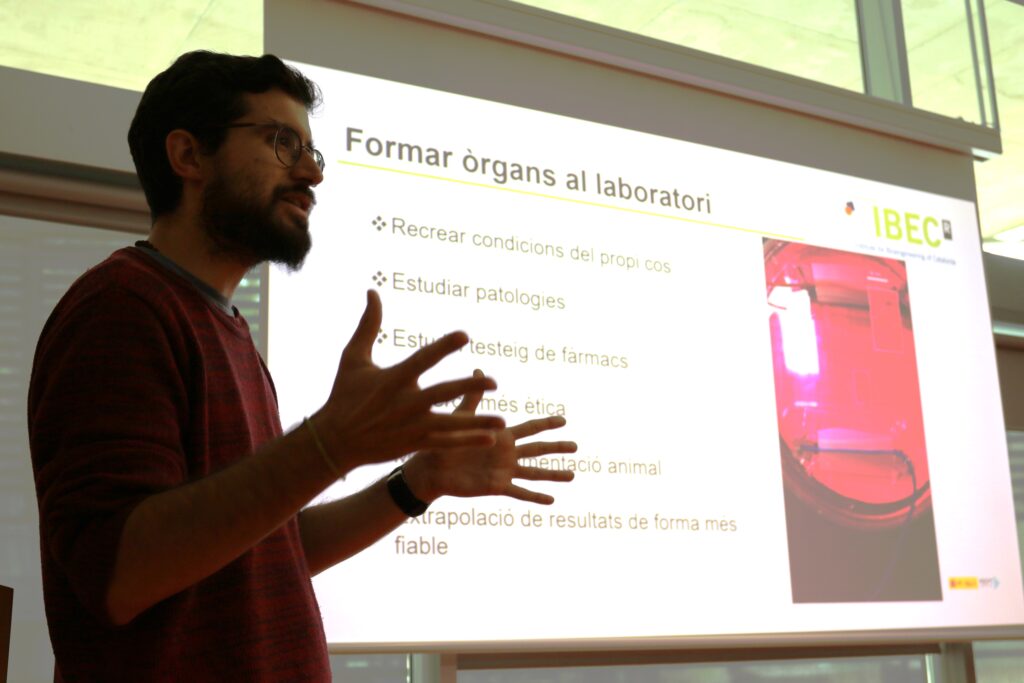
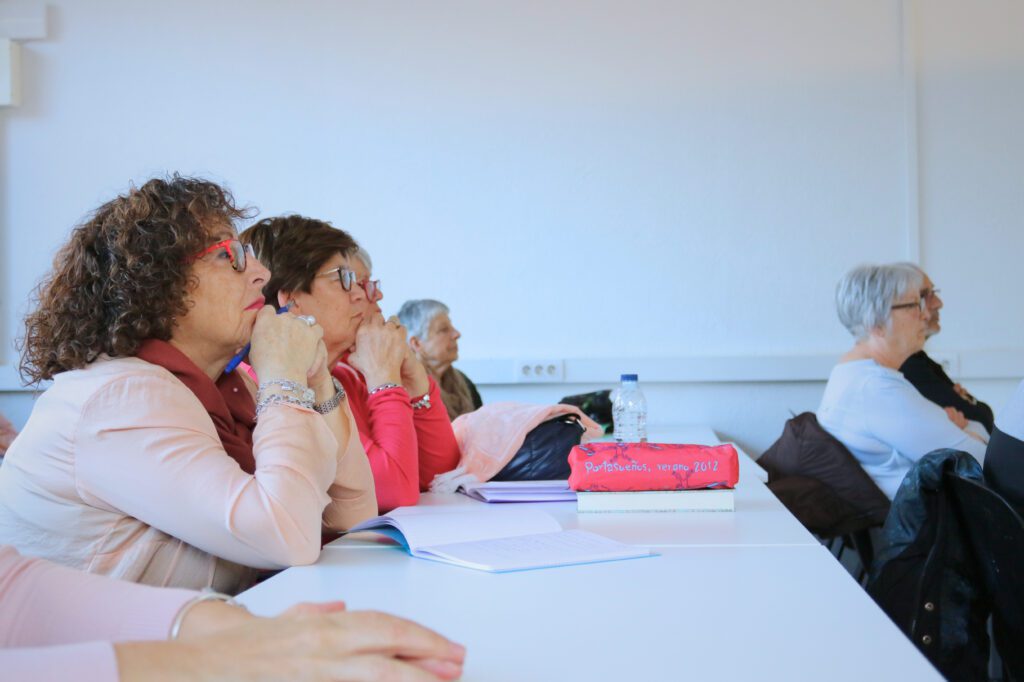
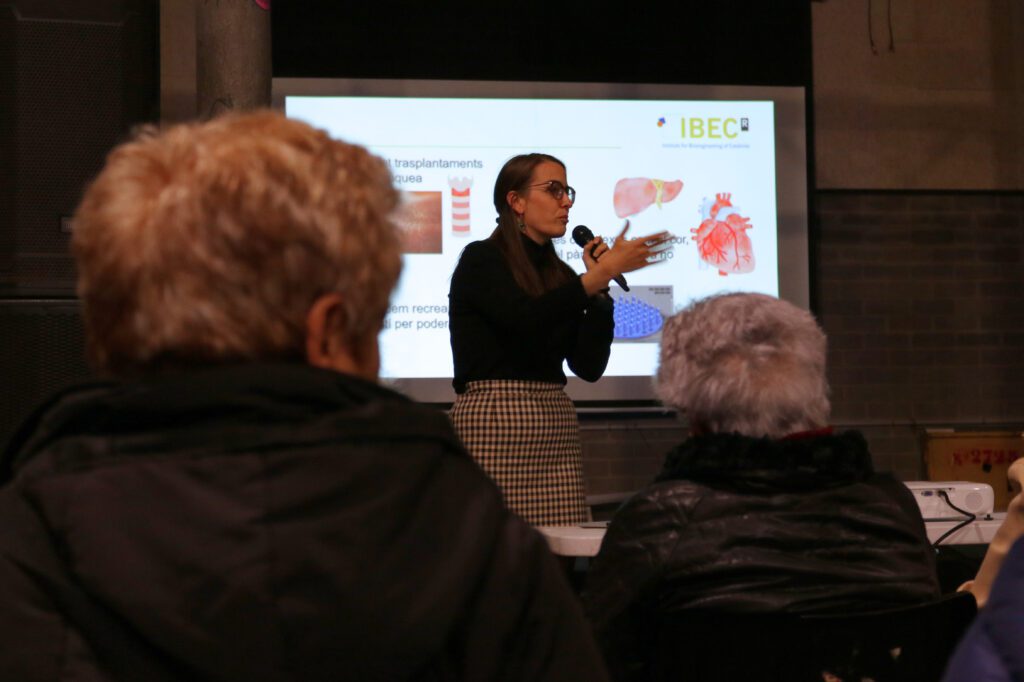
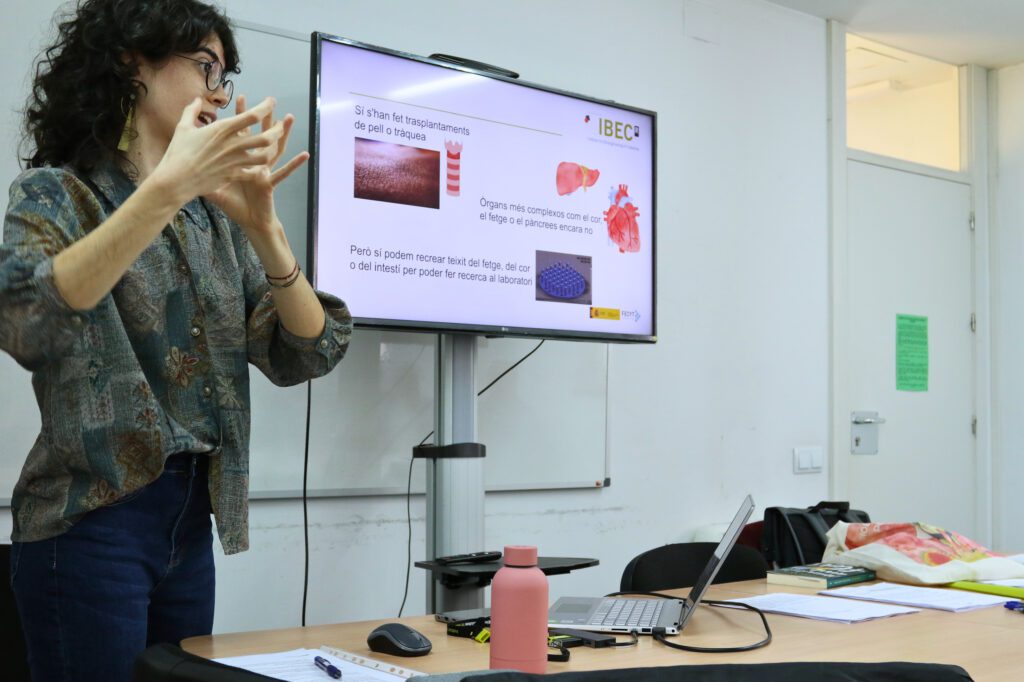
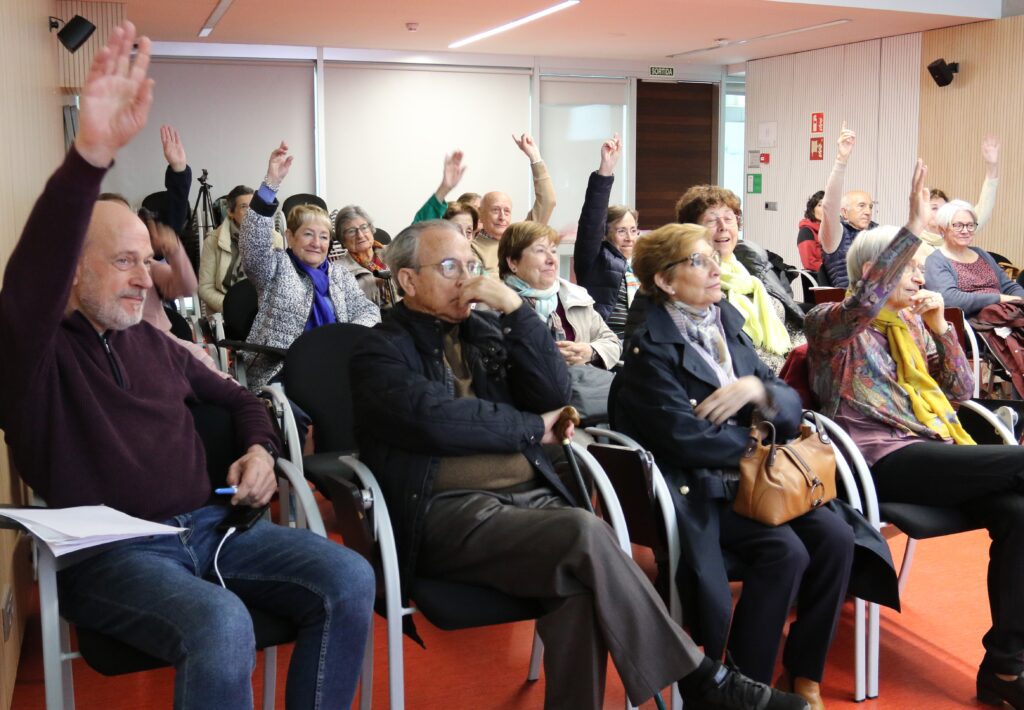
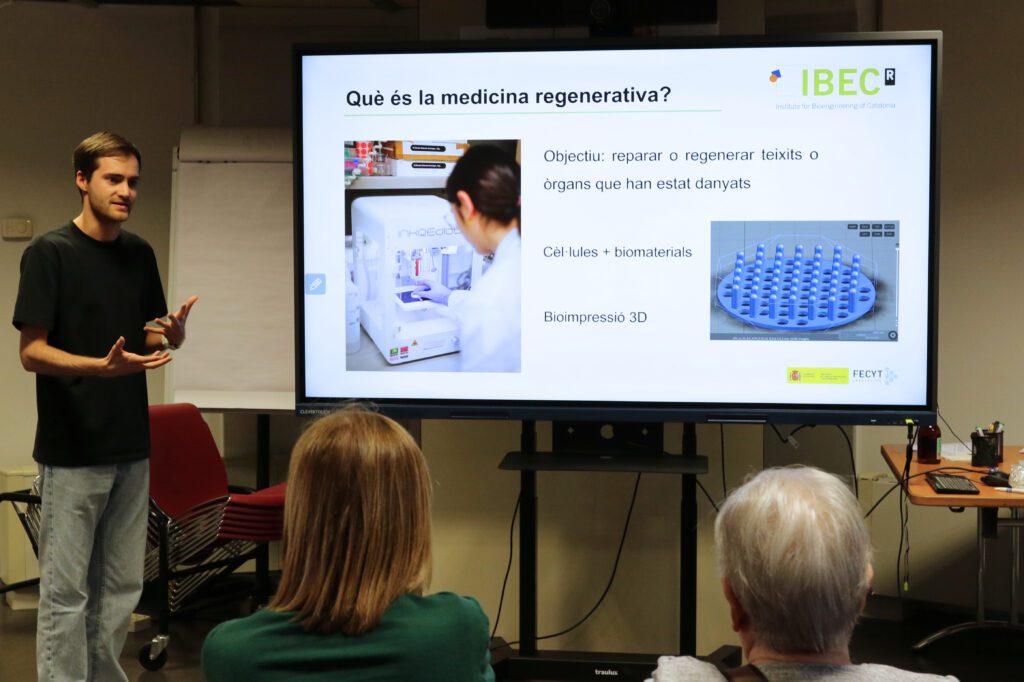
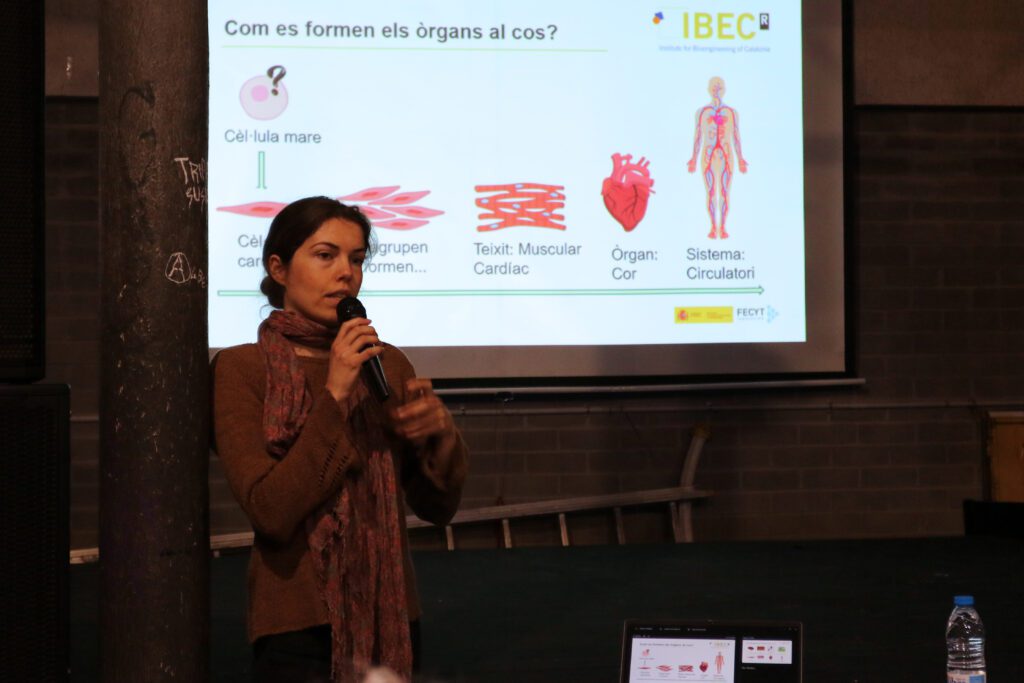

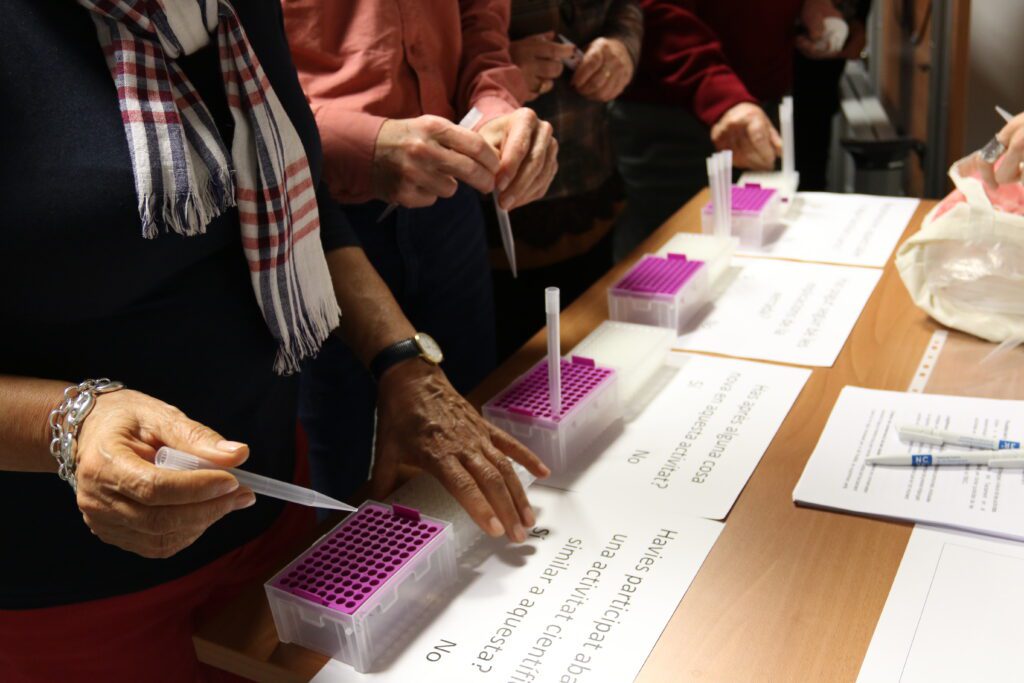
The results
A total of 18 sessions were held, bringing together 295 participants, with an average age of 76 years and a majority of women (76%). During these workshops, they had the opportunity to discuss ethical issues related to organ and tissue regeneration research.
Most participants would accept bioengineered treatments in the field of regenerative medicine. Specifically, 89% would accept a heart bioprinted in the laboratory and 97.9% would accept a dressing made from embryonic cells.
When it comes to cell donation, the majority see it as a benefit in terms of facilitating research and helping other patients. 95.7% would agree to donate cells to a biobank and of these, 49.1% would like to be informed about how their cells will be used.
The results of the project were presented on 26 June at an event held in the Bibliolab area of the Sagrada Familia Library in Barcelona. The event was open to the public and was attended by the project participants, as well as various stakeholders from the scientific and educational communities.
More information about the project, results and access to free resources.
With the collaboration of the Spanish Foundation for Science and Technology - Ministry of Science and Innovation.






